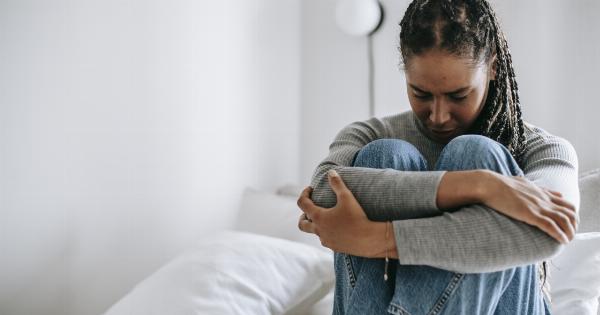Hemorrhoids are a common condition in which the veins around the anus or lower rectum become swollen and inflamed. This can cause itching, discomfort, and sometimes bleeding.
While hemorrhoids can be a painful and inconvenient problem to have, there are several simple steps you can take to prevent or alleviate the symptoms.
1. Stay hydrated
Drinking plenty of water and other fluids can help prevent constipation and make stools easier to pass, which can reduce the risk of hemorrhoids.
2. Eat a high-fiber diet
Eating foods that are high in fiber, such as fruits, vegetables, and whole grains, can help regulate bowel movements and prevent constipation.
3. Avoid straining during bowel movements
Straining while having a bowel movement can cause the veins in the rectal area to become swollen and inflamed, so it’s important to take your time and relax while on the toilet.
4. Exercise regularly
Regular exercise can help keep your digestive system healthy and prevent constipation, which can reduce the risk of hemorrhoids.
5. Don’t sit for long periods of time
Sitting for extended periods of time can put pressure on the veins in the rectal area and increase the risk of hemorrhoids. It’s important to take breaks and move around regularly, especially if you have a desk job.
6. Avoid straining during heavy lifting
Straining while lifting heavy objects can also put pressure on the rectal veins and increase the risk of hemorrhoids.
7. Use the bathroom when you need to
Ignoring the urge to have a bowel movement can lead to constipation and increase the risk of hemorrhoids.
8. Use moist wipes or a bidet instead of toilet paper
Using moist wipes or a bidet can help prevent irritation and reduce the risk of hemorrhoids.
9. Treat constipation promptly
If you experience constipation, it’s important to treat it promptly to prevent straining and reduce the risk of hemorrhoids.
10. Avoid tight clothing
Wearing tight clothing can put pressure on the rectal veins and increase the risk of hemorrhoids.
11. Avoid sitting or standing for long periods of time
Standing for extended periods of time can also put pressure on the rectal veins and increase the risk of hemorrhoids. It’s important to take breaks and move around regularly.
12. Take a warm bath
Soaking in a warm bath for 10-15 minutes can help relieve hemorrhoid symptoms and reduce inflammation.
13. Use a cold compress
Applying a cold compress to the affected area can also help reduce inflammation and relieve hemorrhoid symptoms.
14. Use a stool softener
Taking a stool softener can help prevent constipation and make bowel movements easier and less painful.
15. Try a sitz bath
A sitz bath involves soaking the rectal area in warm water for 10-15 minutes, and can help relieve hemorrhoid symptoms and reduce inflammation.
16. Use topical medications
Over-the-counter creams and ointments can be applied to the affected area to relieve itching and discomfort.
17. Don’t scratch
Scratching the affected area can worsen hemorrhoid symptoms and cause further irritation and inflammation.
18. Avoid spicy foods
Spicy foods can irritate the digestive system and increase the risk of hemorrhoids.
19. Don’t smoke
Smoking can contribute to digestive problems and increase the risk of hemorrhoids.
20. Limit alcohol consumption
Alcohol can dehydrate the body and cause constipation, which can increase the risk of hemorrhoids.
21. Lose weight
Being overweight can put additional pressure on the rectal veins and increase the risk of hemorrhoids, so maintaining a healthy weight is important.
22. Practice good hygiene
Keeping the anal area clean and dry can help prevent irritation and reduce the risk of hemorrhoids.
23. Use a donut pillow
If you experience pain while sitting, using a donut pillow can help reduce pressure on the rectal area and alleviate symptoms.
24. Drink herbal teas
Herbal teas such as chamomile and peppermint can help relieve inflammation and reduce the risk of hemorrhoids.
25. Take a break from sitting at work
If you have a desk job, it’s important to take breaks and move around regularly to prevent pressure on the rectal veins and reduce the risk of hemorrhoids.
26. Get plenty of rest
Getting enough sleep and rest can help keep the digestive system healthy and prevent constipation.
27. Don’t delay treatment
If you experience hemorrhoid symptoms, it’s important to seek treatment promptly to prevent the condition from worsening.
28. Avoid caffeine
Caffeine can increase the risk of constipation and worsen hemorrhoid symptoms.
29. Limit sitting on hard surfaces
Sitting on hard surfaces can put pressure on the rectal area and increase the risk of hemorrhoids.
30. Practice stress-reducing activities
Chronic stress can contribute to digestive problems and increase the risk of hemorrhoids, so practicing stress-reducing activities such as yoga, meditation, or deep breathing can be beneficial.






























